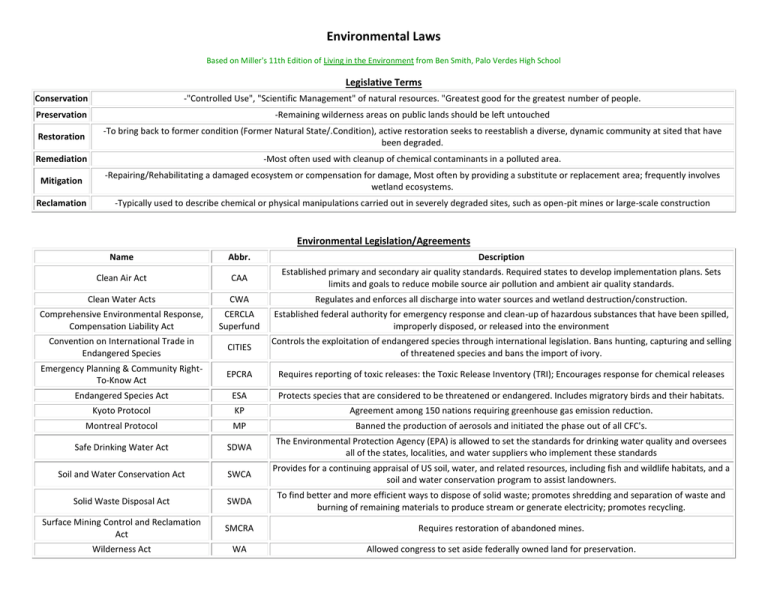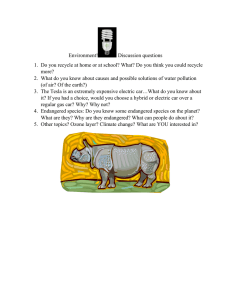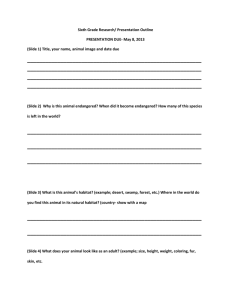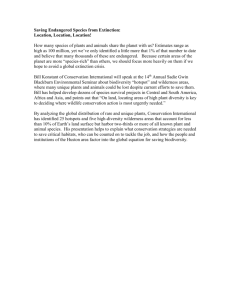Environmental Laws Legislative Terms
advertisement

Environmental Laws Based on Miller's 11th Edition of Living in the Environment from Ben Smith, Palo Verdes High School Legislative Terms Conservation -"Controlled Use", "Scientific Management" of natural resources. "Greatest good for the greatest number of people. Preservation -Remaining wilderness areas on public lands should be left untouched Restoration -To bring back to former condition (Former Natural State/.Condition), active restoration seeks to reestablish a diverse, dynamic community at sited that have been degraded. Remediation -Most often used with cleanup of chemical contaminants in a polluted area. Mitigation -Repairing/Rehabilitating a damaged ecosystem or compensation for damage, Most often by providing a substitute or replacement area; frequently involves wetland ecosystems. Reclamation -Typically used to describe chemical or physical manipulations carried out in severely degraded sites, such as open-pit mines or large-scale construction Environmental Legislation/Agreements Name Abbr. Description Clean Air Act CAA Established primary and secondary air quality standards. Required states to develop implementation plans. Sets limits and goals to reduce mobile source air pollution and ambient air quality standards. Clean Water Acts CWA Regulates and enforces all discharge into water sources and wetland destruction/construction. Comprehensive Environmental Response, Compensation Liability Act CERCLA Superfund Established federal authority for emergency response and clean-up of hazardous substances that have been spilled, improperly disposed, or released into the environment Convention on International Trade in Endangered Species CITIES Controls the exploitation of endangered species through international legislation. Bans hunting, capturing and selling of threatened species and bans the import of ivory. Emergency Planning & Community RightTo-Know Act EPCRA Requires reporting of toxic releases: the Toxic Release Inventory (TRI); Encourages response for chemical releases Endangered Species Act ESA Protects species that are considered to be threatened or endangered. Includes migratory birds and their habitats. Kyoto Protocol KP Agreement among 150 nations requiring greenhouse gas emission reduction. Montreal Protocol MP Banned the production of aerosols and initiated the phase out of all CFC's. Safe Drinking Water Act SDWA The Environmental Protection Agency (EPA) is allowed to set the standards for drinking water quality and oversees all of the states, localities, and water suppliers who implement these standards Soil and Water Conservation Act SWCA Provides for a continuing appraisal of US soil, water, and related resources, including fish and wildlife habitats, and a soil and water conservation program to assist landowners. Solid Waste Disposal Act SWDA To find better and more efficient ways to dispose of solid waste; promotes shredding and separation of waste and burning of remaining materials to produce stream or generate electricity; promotes recycling. Surface Mining Control and Reclamation Act SMCRA Requires restoration of abandoned mines. Wilderness Act WA Allowed congress to set aside federally owned land for preservation.




